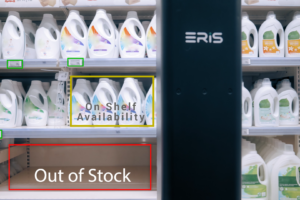Nearly 8 out of 10 merchants globally believe real-time payments will replace the use of cards over time.
ACI Worldwide and Ovum’s latest benchmark study reveals merchants are now considerably more positive about the opportunities of immediate payments than they were a year ago. Nearly 80 percent (77) of globally surveyed merchants hold the view that real-time payments will replace the use of payment cards over time, according to new benchmark data, “2018 Global Payments Insight Survey: Merchants,” from ACI Worldwide and Ovum. Comprised of responses from executives across the retail, digital goods, hospitality, telecom and travel sectors, the benchmark also revealed that 65 percent reported interest in accepting real-time payments, up from 57 percent last year.
Real-Time Payments are becoming a reality as merchants discover operational and cost benefits:
- Of the merchants that believe real-time payments will replace the use of payment cards over time, 77 percent in the US hold this view, despite the reliance on plastic cards in the market.
In the Netherlands, 100 percent of the merchants surveyed hold this view following the country’s success with online banking payment schemes. - 78 percent of merchants believe real-time payments can help lower costs, more than a 20 percent increase from 2017 (57).
- 78 percent of merchants now believe real-time payments will deliver improvements in customer service, up from 59 percent in 2017. 82 percent of retailers and 80 percent of telecoms companies see the potential to leverage real-time payments to deliver enhancements to their customer experience. 82 percent of merchants in Asia are most positive about real-time payments delivering enhancements to their customer experience; in India, Malaysia and Thailand, more than 90 percent hold this view.
Balancing fraud, security and shopping conversion rates a challenge for merchants:
- 61 percent of merchants believe they are at a greater risk of a data security breach than a year ago; 22 percent experienced theft of data in the same timeframe.
Europe has been impacted the most at 26 percent. The hospitality sector has been most heavily affected with 29 percent having experienced a breach. - 59 percent of merchants see abandoned baskets as a bigger concern than fraud losses and chargebacks; at 64 percent each, the retail and digital goods sectors are most pragmatic about the realities of fraud risk.
“As the survey has shown, real-time payments and security are clearly top of mind for merchants today,” said Mike Braatz, senior vice president, ACI Worldwide. “Driven by customers’ shifting preferences in how they purchase and the channels they purchase through, merchants are finding the need to improve the customer experience and operating efficiency to maintain a competitive edge now and in the future.”
“The rollout of new real-time payments infrastructure in 2017, notably in the US, Australia and the SEPA zone, has driven a marked change in attitudes among both merchants and consumers,” said Kieran Hines, head of industries, Ovum. “Where real-time was perhaps seen as a financial plumbing issue, it is now more widely viewed as the key to delivering a series of operational benefits.”
Read the full report.
Methodology:
For the 2018 Global Payment Information Survey, Ovum and ACI Worldwide partnered to run a 22-question survey across a global panel of executives, with a focus on retail banks, billing organizations and merchants. The main topics of focus for the survey include: IT investment plans around payment services, core business objectives and priorities, attitudes toward fraud and security, payment systems and architecture, and plans and experiences around open banking and real-time payments. The survey was conducted between December 2017 and January 2018 and provides insight into current thinking in the industry across financial institutions, merchants and billing organizations such as higher education, consumer finance and insurance. Overall, it included a total of 1,032 executive respondents across 13 industry sub verticals in 19 countries, resulting in 225,000 separate data points on current perceptions and investment plans around payments technology on a global basis.
Source: ACI Worldwide





















